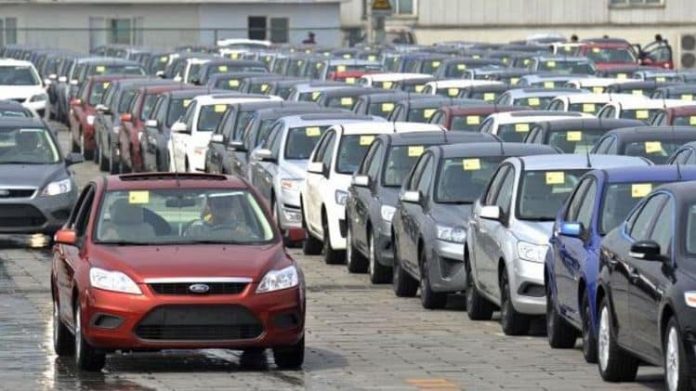LAHORE: Public Accounts Committee (PAC) Chairman Noor Alam Khan on Tuesday directed the secretary industries and production to ensure the presence of the bosses of all car companies operating in Pakistan at the next committee meeting while expressing displeasure over the absence of presidents and CEOs of a number of automobile companies who were expected to show up.
Accordong to the detaisils, senior automobile manufacturing officials and executives skipped the meeting that had been called to discuss the persistent increase in car prices across the industry.
The PAC, which is a committee of Pakistan’s parliament meant to have loose oversight over public accounting, had called the meeting after observing a number of complaints regarding the sharp hike in the prices of cars. The conspicuous absence of industry executives, however, left the committee slightly red-faced, leading to them summoning not just the CEOs of these companies but also the FBR chairman, the SBP governor, and the SECP chairman.
In response, the automobile industry has gone from indifference to annoyance. Abdul Waheed Khan, Director General of the Pakistan Automotive Manufacturers Association (PAMA), expressed annoyance over the summons saying the industry was going through turbulent times.
“These are not normal times. Sometimes the exchange rate is fluctuating, sometimes there is another problem. The latest thing is that we need to get our letter of credit approved by the SBP — something which has never happened before. This has led to us incurring demurrage worth billions,” he told Profit.
The SBP’s administrative mandate over the letter of credits pertaining to completely-knocked-down (CKD) kits and other automotive parts is at the heart of the issue. The measure came about as a means to preserve Pakistan’s foreign exchange reserve. The SBP did allocate quotas to both automotive manufacturers and parts’ companies. However, both aforementioned parties have found the quota to not be fit for them to adequately cater to demand.
“The issues surrounding the industry are highly complex. Take our parts manufacturers for example. They are suffering delays, and if a car is made up of 100 parts, then we cannot very well roll out a car with 99 parts, can we? As long as all these problems are not addressed, delays and price uncertainty will continue to reign,” he continued.
PAC’s session on Tuesday was the latest in a war of words that the government and the automotive sector has been embroiled in over the better part of the summer, with each claiming to be a victim of the other’s unreasonableness. With the committee trying to flex its constitutional muscle by summoning industry CEOs now, the war of words may turn into a war of attrition. In the latest meeting, since the prices of cars are going beyond the control of the Ministry of Industries & Production, the Committee requested the Prime Minister of Pakistan to open the import of vehicles/cars to overcome the monopoly of automobile companies in the country.
Previously, the National Assembly Standing Committee on Industries and Production had directed the Ministry of Industry and Production (MoIP) to take stringent actions against the sector for what it believed were unjustified practices.
The automotive sector at face value does not constitute a major component of Pakistan’s persistent forex crisis. Automotive CKD kits and parts constituted the 3.04 per cent and 0.65 per cent of total imports across FY22 of all imports based on figures provided by the Pakistan Bureau of Statistics (PBS). However, the transport sector was the largest consumer energy across FY22 with a total consumption of 17.40 million tonnes of energy. This secondary consumption is perhaps what the government has bundled alongside the overall sector to constitute a major contributor to the forex crisis.
The government had rescinded the import ban on imported vehicles in August by increasing the regulatory duties and additional customs duties that were levied on the imports as a means to mitigate forex outflow without destroying the sector. However, the government has yet to establish any comparable agreement with domestic vehicle and parts manufacturers.





What a farce in the name of governance; Ministry of Industries & it’s department EDB; after providing benefits worth billions; are not willing to implement clauses favouring the consumers.
Auto policy prohibits car manfacturing companies to book vehicles other than on partial payments & restricts partial payment to 20% of Vehicle price. In case of non-compliance of policy interventions by a manufacturing company, the incentives under SRO. 656 (I)/2006 were to be stopped by EDB. Hyundai Nishat by booking the vehicle on full price & then refusing to deliver vehicle even after more than 100 days is blatantly against AIDEP-2021-26,
Industry doesn’t think that this present Government has a mandate to do anything. Good on you!!
Too right!!